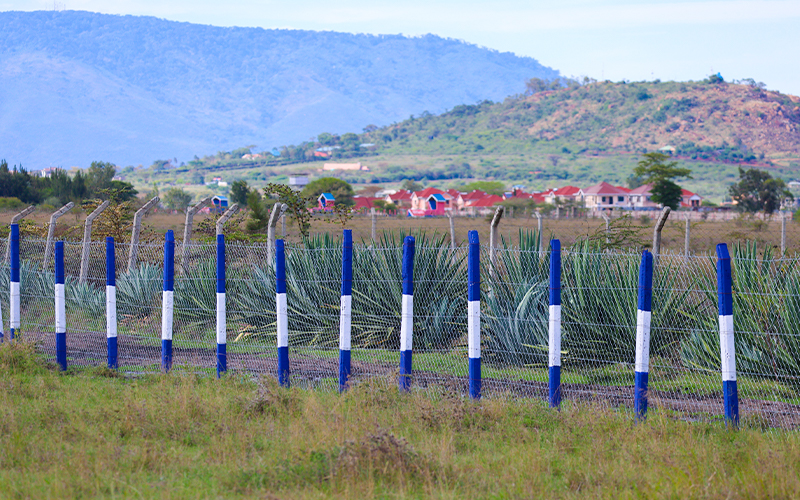
Stamp Duty is a mandatory tax levied by the national government on the legal document that officially transfers ownership of land or property from one party (the seller/transferor) to another (the buyer/transferee)
Owning land in Kenya is a significant achievement, symbolizing stability and a tangible investment in one's future. However, this milestone comes with crucial responsibilities, particularly understanding and fulfilling your financial obligations related to land rates and stamp duty during property acquisition and ownership.
This comprehensive guide is designed to empower property owners and prospective buyers with accurate, up-to-date information on these vital aspects, ensuring full compliance with Kenyan regulations and a smooth property journey.
Why Land Rates and Stamp Duty Are Crucial for Kenyan Property Owners
Before diving into the specifics, let's understand why these taxes matter:
Legal Ownership & Recognition: Payment ensures your property ownership is legally recognized and secured by the government.
- Funding Public Services: Land rates contribute directly to local infrastructure development and essential services.
- Avoiding Penalties & Disputes: Timely payments prevent accumulating fines, interest, and potential legal complications, including property auctions.
- Facilitating Smooth Transactions: A clear record of paid rates and duty is essential for any future sale or transfer of the property.
Understanding Land Rates in Kenya: Annual Property Taxes
Land rates are annual taxes levied by county governments on land parcels within their jurisdiction. These funds are instrumental in supporting local infrastructure projects (roads, water, electricity) and public services (healthcare, education, waste management).
Key aspects of land rates:
- Who Pays? The registered landowner is responsible for paying land rates. In the case of long-term leases, the leaseholder may also be obligated. Tenants are generally not responsible unless explicitly stated in their lease agreement.
- How are Land Rates Calculated? The calculation is typically based on a percentage of the unimproved site value (USV) of the property, as assessed by the county government. The specific rate varies significantly across counties. For example, some counties may charge 1% of the current market value.
- When are Land Rates Due? Land rates are annual payments. It's advisable to pay them before the end of the county's financial year, which typically concludes on June 30th.
Step-by-Step: How to Pay Land Rates Online (Nairobi County Example)
Many counties in Kenya have transitioned to convenient online payment systems. For landowners in Nairobi County, the process is streamlined:
- Registration/Login: Access the Nairobi County e-payment portal (e.g., Nairobi Pay or eCitizen portal) or dial the USSD code *647# (confirm the current official USSD code as these can change). If you're a first-time user, you'll need to register for an account.
- Access Land Services: Once logged in, navigate to the "Land Services" or "Land Rates Bill" option, often found under the Ministry of Land and Urban Housing section.
- Property Search: Enter your Title Number (also known as Parcel Number) to retrieve your outstanding land rates.
- Confirm Details & Pay: Verify the displayed information, including the amount due. Proceed to make the payment using available options (M-Pesa, bank transfer, credit/debit card).

- Receipt & Records: Upon successful payment, a digital receipt will be generated. Print or save this payment slip for your records. This serves as proof of payment and is crucial for obtaining a Land Rates Clearance Certificate.
Alternative Payment Methods:
- County Government Cash Office: Payments can still be made in person at your respective County Government Cash Office. Ensure you receive an official receipt.
- Direct Bank Deposits: Some counties provide specific bank accounts for direct deposits. Always verify the correct account details on the official county website.

Crucial: Consequences of Non-Payment of Land Rates
Failure to pay land rates on time can lead to serious repercussions:
- Penalties and Interest Accruals: Late payments attract significant penalties and interest, increasing the total amount owed.
- Inability to Transact: You will be unable to transfer ownership, subdivide the land, or carry out other property transactions without a valid Land Rates Clearance Certificate.
- Legal Action & Property Auction: In severe cases, county governments can initiate legal proceedings, which may culminate in the public auction of the property to recover outstanding dues.
- Outdated Records: Non-payment can lead to discrepancies in county records, complicating future dealings.
Pro-Tip: Stay informed about potential land rate waivers offered by counties. These limited-period waivers can help property owners clear accumulated penalties and interest, encouraging compliance. Always check official county announcements.
Book a Free Site Visit
Stamp Duty on Land Transfer in Kenya
Stamp duty is a critical tax imposed by the national government on legal documents during property transactions, most notably land transfers. It's a one-time payment made by the buyer to formalize the change of ownership.
Key aspects of stamp duty:
- Who Pays? Typically, the buyer is responsible for paying stamp duty.
- Calculation: The stamp duty is calculated based on the property's current market value, as assessed by a government valuer.
- Rates (as of April 2024 - verify for current changes):
- Urban Areas: Properties within gazetted towns and municipalities are subject to a 4% stamp duty rate.
- Rural Areas: Properties outside these gazetted areas generally attract a 2% rate.
Illustrative Stamp Duty Calculation Examples:
- Urban Property: For a property valued at KES 10,000,000 within a gazetted town (e.g., Nairobi, Mombasa, Nakuru), the stamp duty would be: 4% of KES10,000,000=KES400,000
- Rural Property: For a property of the same value (KES 10,000,000) located outside a gazetted area, the stamp duty would be: 2% of KES10,000,000=KES200,000
Step-by-Step: Payment Process for Stamp Duty
The payment process for stamp duty is crucial for the legal transfer of property:
- Valuation: The first step involves submitting the sale agreement and other required documents (such as the original title deed, KRA PIN certificates of both buyer and seller) to the Ministry of Lands and Physical Planning for official valuation. A government valuer will assess the property's current market value.
- Assessment & Payment Slip Generation: Based on the valuation, the Kenya Revenue Authority (KRA) will assess the stamp duty amount. You will then generate a payment slip through the KRA iTax portal (under "Agency Revenue" and "Stamp Duty").
- Payment: Pay the calculated stamp duty through designated commercial banks or online platforms linked to iTax (e.g., M-Pesa, bank transfers).
- Receipt & Registration: Obtain a payment receipt. This receipt is a mandatory document required for the registration of the property transfer at the Land Registry. Without this payment, the transfer cannot be legally concluded.
Important Considerations & Recent Changes
- April 2024 Rate Adjustment: The Ministry of Lands increased the stamp duty rate for properties within gazetted towns and municipalities from 2% to 4% in April 2024. This highlights the importance of verifying the most current rates before any transaction.
- Due Date for Payment: For instruments prepared locally, stamp duty should generally be paid within 30 days after assessment. For documents executed abroad, it must be paid within 30 days of receiving the documents in Kenya.
- Non-Payment Consequences: Failure to pay stamp duty renders the transaction invalid and any signed agreement null and void. The relevant documents become inadmissible as evidence in a court of law. Penalties for late payment include a fine assessed at 5% of the principal stamp duty for every quarter from the instrument's date.
- Exemptions: Certain transactions may be exempt from stamp duty, such as transfers of land to charitable organizations as gifts, transfers of property between spouses, or transfers of family property to members upon the demise of a registered owner. Always confirm eligibility for exemptions with KRA or a legal professional.
Additional Key Information for Property Owners
- Land Rates Clearance Certificate: This is a vital document issued by the county government confirming that all due land rates and accrued interest have been fully paid. It's essential for any property transaction.
- Ardhisasa Platform: Kenya is progressively digitizing land records and services through the Ardhisasa platform. While not explicitly mentioned for payments in the original text, it's becoming the central hub for many land-related services and should be highlighted as a key resource for property owners to check their details and potentially future payment options.
- Professional Guidance: Given the complexities involved, especially with valuations and legal compliance, it is highly recommended to seek guidance from reputable real estate lawyers, valuers, and tax consultants to ensure a smooth and compliant process.
Frequently Asked Questions (FAQs)
Q1: What is the difference between land rates and land rent? A1: Land rates are annual taxes paid to county governments for properties within their jurisdiction, based on the unimproved site value. Land rent (also known as ground rent) is an annual payment made to the national government (Ministry of Lands) for leasehold properties (land held for a specific period, e.g., 99 years) where the land is owned by the government. Freehold properties generally do not pay land rent.
Q2: Can I sell my land if I have unpaid land rates? A2: No, you cannot legally complete the sale or transfer of your land if you have outstanding land rates. A Land Rates Clearance Certificate is a prerequisite for property transfer and registration.
Q3: How long does it take to process stamp duty in Kenya? A3: The processing time can vary, but generally, it takes 7-14 working days after submitting all required documents and completing the valuation. Delays can occur due to incomplete documentation or system backlogs.
Q4: Is stamp duty negotiable? A4: No, stamp duty rates are fixed percentages determined by the government based on the property's assessed market value and location.
Q5: Where can I get an official valuation for stamp duty purposes? A5: The official valuation for stamp duty purposes is carried out by a government valuer from the Ministry of Lands and Physical Planning. Private valuations may be conducted for other purposes (e.g., mortgage applications) but are not typically used for stamp duty assessment.
Q6: What documents are needed for land transfer and stamp duty payment? A6: Key documents include the original title deed, KRA PIN certificates of both buyer and seller, the sale agreement, and the valuation report from the Ministry of Lands.
Q7: Can I pay stamp duty directly through M-Pesa? A7: While you can generate a payment slip through the KRA iTax portal and then pay using M-Pesa (via the KRA Paybill number), you generally cannot directly pay the stamp duty amount without first generating the payment slip through the official government platforms.



